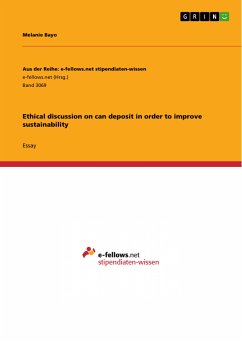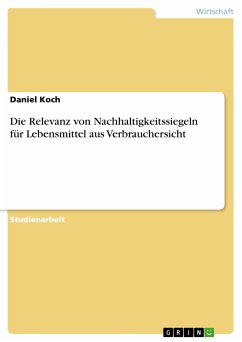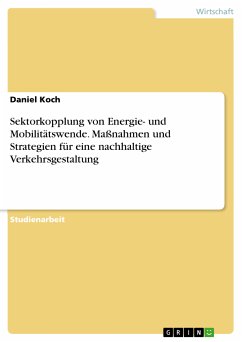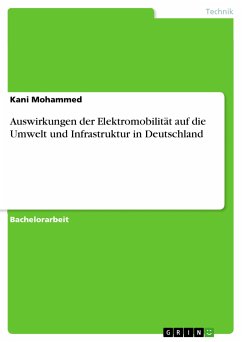Essay from the year 2018 in the subject Business economics - Business Ethics, Corporate Ethics, grade: 1,7, Leuphana Universität Lüneburg, language: English, abstract: This essay ethically discusses the decision of a country (Country A) to introduce a two US-$ can deposit on all plastic bottles sold in order to improve sustainability. A currently discussed sustainability dilemma is natural resource depletion and environmental pollution through plastic. Since plastic has several fields of use, a lot of crude oil is extracted. As products made of plastic usually have a short duration of usage, using plastics is considered to be a waste of resources. Furthermore, plastics are not biodegradable which leads to increasing waste of plastic in the environment. Several measures are undertaken to counter the impacts of plastic, for instance implementing recycling systems or developing alternative packaging. The opinion held in this paper is that introducing a 2 US-$ deposit in order to improve sustainability is morally wrong from a deontological point of view. First, the introduction of the can deposit limits people's freedom of choice. Second, the amount of two US-dollars is unjust, considering that some people will not be able to always raise them. Third, sustainability is not addressed appropriately, since sustainability dimensions other than ecology are not well considered.
Dieser Download kann aus rechtlichen Gründen nur mit Rechnungsadresse in A, B, BG, CY, CZ, D, DK, EW, E, FIN, F, GR, HR, H, IRL, I, LT, L, LR, M, NL, PL, P, R, S, SLO, SK ausgeliefert werden.









